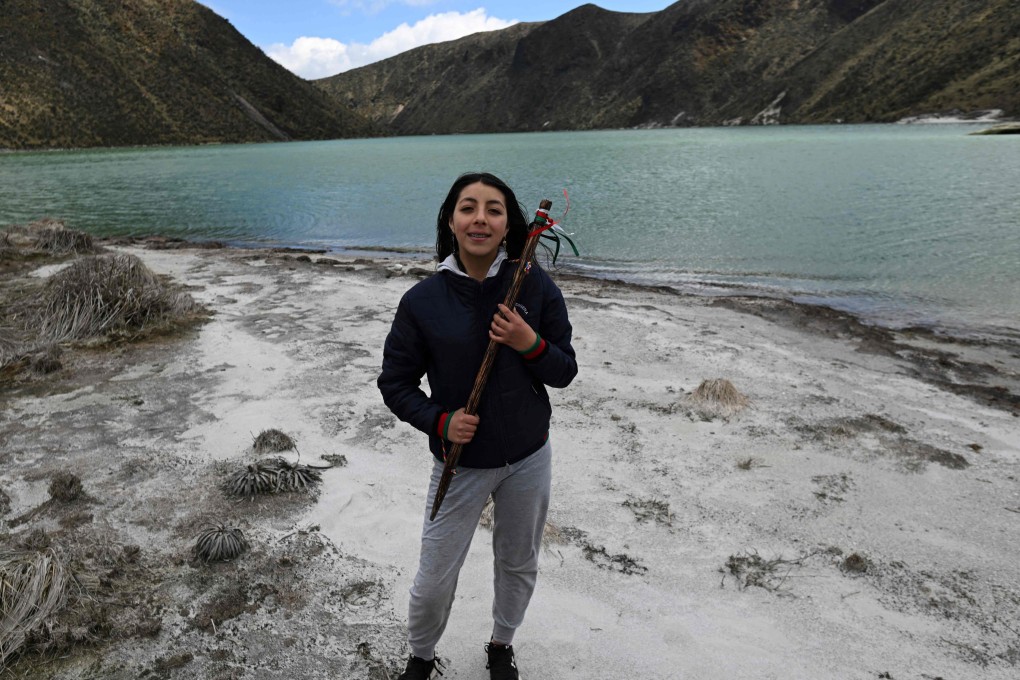Overtourism threatened a sacred Colombian lake. How indigenous guards saved it from damage
The volcanic lake was overrun with tourists, who left litter and polluted drinking water sources, until indigenous leaders closed it off

In the crater of a semidormant volcano in southwest Colombia is a sacred lake of startling green which used to draw a steady stream of garbage-tossing tourists before indigenous leaders took back control.
Ascending the Azufral volcano, which rises to 4,070 metres (13,369ft) in the western Colombian Andes, is not for the faint-hearted.
It is also not for the uninvited. Only those who receive the nod from the governor of the local indigenous Pasto community may pass.
“The spirits of the lake don’t like to be disturbed. We have to ask their permission,” Jorge Arevalo, a 41-year-old member of the lake’s indigenous guard, said.

A handful of guards accompanied a rare visit to the lake – a shimmering body of water three km wide in ever-changing hues of emerald, olive and turquoise, surrounded by sandy beaches.